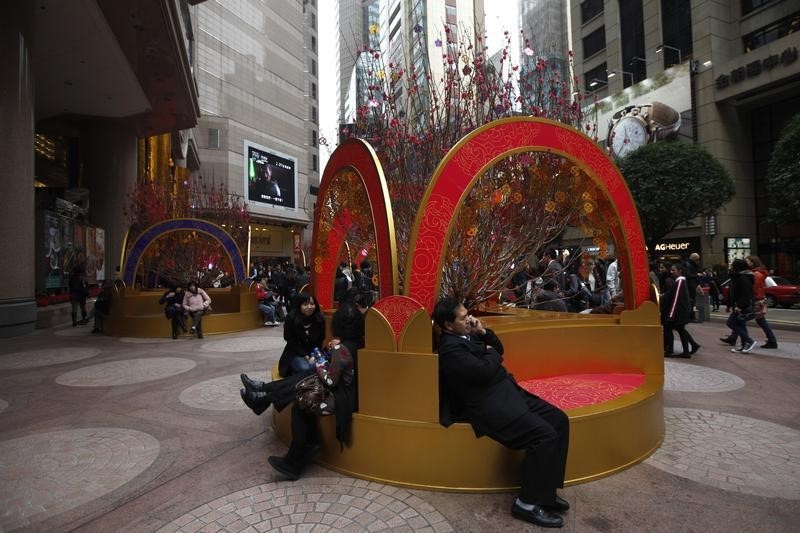* Five booksellers went missing under mysterious circumstances
* All have now surfaced in mainland China in police custody
* Two held foreign passports; Sweden and Britain denied access
* Diplomats see looming crisis
* Dual passport holders fear for their safety
By James Pomfret and Greg Torode
HONG KONG/GUANGZHOU, China, Feb 6 (Reuters) - For years Gui Minhai, a China-born publisher of tabloid books on China's leaders, had believed he could live and work overseas on a Swedish passport without fear of persecution by Chinese authorities, which ban such works on the mainland.
His disappearance, however, from Thailand last October and his tearful appearance last month on Chinese state television have undermined confidence among some diplomats in the protections afforded to hundreds of thousands of foreign passport holders in Hong Kong and China.
Reuters has confirmed that at least eight governments including Germany, Japan, Australia, Canada and the United States have in private raised concerns with Chinese officials, saying detaining Gui and his associates breaches the "one country, two systems" formula under which Hong Kong has been governed since its return to China.
China's Foreign Ministry did not immediately respond to a faxed request from Reuters to comment on those diplomatic concerns.
Earlier this week, Chinese Foreign Ministry spokesman Lu Kang said Hong Kong's autonomy was fully respected, and that as the territory belonged to China, no foreign officials had the right to interfere or offer "not really appropriate" comments about the city.
Publishing literature critical of Beijing is not illegal in the former British colony, under the freedoms guaranteed as part of Hong Kong's 1997 handover to China.
Three associates of Gui - who specialised in gossipy books on Chinese politics - were reported missing late last year, and were only this week confirmed to be in China and under investigation for unspecified "illegal activities". British passport-holder Lee Bo, surfaced in China last month after vanishing from Hong Kong weeks earlier. Lee's wife told reporters he had left his travel permit for mainland China at home.
"I used to ask him if it was safe to be doing what he was doing," Gui's daughter, Angela, told Reuters by phone from Britain where she is studying. "And he did mention his Swedish nationality as something that would ensure his safety."
While Gui said on Chinese television that he had voluntarily turned himself in, authorities from Thailand have said there was no record of Gui leaving the country.
Abductions by Chinese agents in Hong Kong would be illegal. There is no evidence that the five booksellers were abducted.
China's Foreign Ministry said this week that its law enforcement officials would never do anything illegal, especially not overseas. CONCERN
A number of governments have expressed concern regarding the disappearances, which some diplomats fear were abductions by Chinese agents. On Friday, the European Parliament called for "the immediate safe release" of all five booksellers. diplomats from the governments interviewed by Reuters in Hong Kong, Beijing and Guangzhou all showed serious concern. Some of them warned of a diplomatic crisis. They declined to be identified due to the sensitivity of the matter.
China's reluctance to provide information and its refusal to allow Swedish or British envoys access to Gui or Lee - a breach of international conventions - is fuelling a diplomatic crisis, several senior Western diplomats said.
"It's another indication that China is not going the right way in behaving responsibly in terms of international norms," said a European diplomat. "But China can do so now because no one can challenge them."
British Foreign Office staff told Reuters privately that London is still grappling with how to pressure China on the issue as it seeks to strengthen economic and trade ties.
In a separate disappearance, a Chinese journalist and activist, Li Xin, vanished in Thailand last month and has since reappeared in China under police custody. ARE NOT SAFE"
One key issue arising from the arrests is Hong Kong's large number of ethnic Chinese who carry foreign passports and the apparent inability of foreign governments to get access to them should they get into trouble with China.
Unease has spread among some dual nationals in Hong Kong, including financial professionals, who are questioning their future in one of Asia's most international and law-abiding cities.
"We are not safe," said Sammy Lo, a Hong Kong-born stock broker who holds a Canadian passport. "They can take you away wherever you are."
Lo was so unnerved that he said he was speeding up plans to leave Hong Kong.
Several hundred thousand ethnic Chinese with dual foreign nationality now live in the city of 7.2 million, led by Canadians, Americans, British and Australians, according to figures provided by around a dozen foreign consulates.
China does not recognise dual nationality. Hong Kong does, but requires a specific declaration that you wish to be treated as a foreign national. It is unclear if Gui or Lee had formally asked to be treated as foreigners.
China's Foreign Minister Wang Yi said last month that Lee was "first and foremost" a Chinese citizen, despite his British passport. Wang did not elaborate.
While China does not recognise dual nationality, several countries including the U.S., Canada and Australia say they can provide consular assistance for dual nationals who enter China on their passports, though there may be a limit to that assistance.
A few others including Britain said they can't help, according to consular agreements with China.
